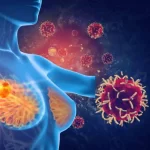Study Reveals 370 Targets for Cancer Treatment
A vast number of drug targets that were identified earlier have become possible to identify by employing machine learning. These targets include those from breast cancer, glioblastoma, cervical cancer and many more such cancers.
Overall, 27 different types of cancer were found to be targetable for as many as 370 drugs. This was revealed in a study that was published on January 11 in the journal Cancer Cell. The Broad Institute, which deals with strategies for personalized cancer treatment, has a joint project with Wellcome Sanger. The joint venture intends to spell out a cancer dependency map, which will certainly help in future precision drug targets and Cancer Treatment.
The study co-lead, Mathew Garnett (Ph.D.), said in a press release, “This work exploits the latest in genomics and computational biology to understand how we can best target cancer cells for Cancer Treatment. This will help drug developers focus their efforts on the highest-value targets to bring new medicines to patients more quickly.”
This was made possible only through the data from the Cancer Dependency Map, which contained a long list of data, that was thoroughly analyzed. The procedure included performing CRISPR-Cas9 alterations that were done to every human cell line, all at the same time, nearly 18,000 genes in total. Machine learning techniques were then employed to scrutinize the dataset and identify genes, proteins, and pathways critical to cancer cell survival and towards Cancer Treatment.
Following this process, researchers linked the narrowed-down candidates to clinical biomarkers. This linkage facilitates the identification of patients who might benefit from treatments targeting specific genetic markers. The researchers wrote in their paper, “Notably, almost all targets had an associated marker, which is important as genetic evidence between a target-disease indication increases 2- to 4-fold the probability of FDA approval of a drug during clinical development,”.
370 priority drug targets across 27 #cancer types, spanning breast, lung and ovarian cancers have been uncovered ????
— Wellcome Sanger Institute (@sangerinstitute) January 12, 2024
These can help accelerate the development of targeted cancer treatments ????https://t.co/E2l2prOqx7
Further analysis indicated that approximately 30% of all cancer patients carry a biomarker for one of the identified targets—a noteworthy finding considering the previously estimated 14% of patients believed to be candidates for therapies targeting the cancer genome.
However, the researchers cautioned that not all identified targets may lead to the development of drugs, and the presence of genomically-linked biomarkers varies among different cancer types. Some cancers may exhibit little or no change in new targets based on these findings.
The researchers further said, “This emphasizes that novel approaches are still needed to enable expansion of the current repertoire of new medicines for patients,”. As per their results achieved, it can be safely concluded that this can help expand the therapy targets in patients, with the help of multiomics biomarker tests. These tests actually look at the overall different levels of information collectively, namely assessing both the protein and the gene expression. Certainly, the future of the efforts towards Cancer Treatment is looking brighter and towards a decisive conclusion.








